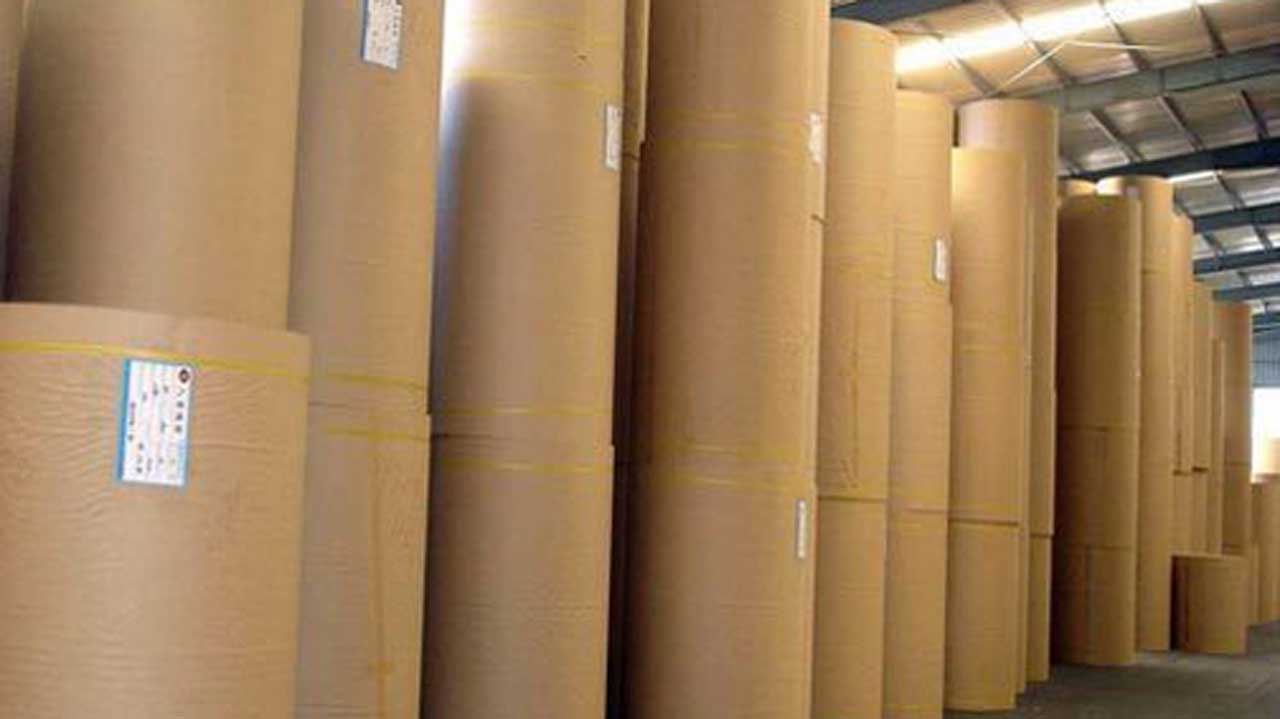 …FG plans resuscitating ailing paper industry
…FG plans resuscitating ailing paper industry
Operators in the pulp, paper products, printing and publishing industry have raised concerns about poor investment in the sector’s value chain owing to government policies and regulation, despite growing demand for paper products.
According to them, the amount spent on importation remains a source of concern to the industry, as N410 billion was expended on importation of paper making material, paperboard articles in the third quarter of 2021, with trajectory showing over N500 billion by the year end, compared to a paltry export value of N1.3 billion.
Already, operators are suggesting new species of trees to increase access to raw materials.
Besides, the Federal Government, through the Ministry of Industry, Trade and Investment, has announced plans to resuscitate the nation’s ailing paper industry by setting up an inter-agency committee to investigate the remote and immediate causes of the collapse of the privatized paper mills in the country.
The Director, Industrial Development, Federal Ministry of Industry, Trade and Investment, Mr. Adewale Bakare, represented by the Deputy Director, Mrs. Olumuyiwa Ajayi-Ade, explained that the aim is to find lasting solutions for their revitalization with a view to coming up with a sector-specific policy.
Bakare stated this at a workshop organised by the Lagos Chamber of Commerce and Industry (LCCI), tagged “Raw materials demand and supply in the pulp and paper mills in Nigeria.”
According to him, the workshop was in line with the growth of the pulp, paper and printing sector in Nigeria, which is in line with the Federal Government’s National Development Plan (2021-2025) and the Nigeria Industrial Revolution Plan (NIRP) championed by the ministry.
“These plans focus on sectors with great potential to generate jobs and have the ability to create multiplier effects on other sectors for a sustainable holistic national development,” he said.
Earlier, the president, LCCI, Dr Michael Olawale-Cole, noted that Nigeria, in the third quarter of 2021, spent N410 billion on importation of paper making materials, paperboard articles and exported N1.3 billion during the same period.
He noted that the country’s installed production capacity remained at an abysmally low level of 200 thousand metric tonnes, thereby making importation of raw materials inevitable.
The LCCI boss stated that Nigeria as Africa’s second largest importer of printing and paper processing technologies was illogical given its huge arable land and abundant forest resources across the country.
He stressed that the increasing demand for e-commerce and packaging, indicated expected sustained demand for innovative products going into the future as more business processes become digitized and automated.
He called for legislative backing and a harmonised regulatory framework for printing, packaging and publishing to spur investment in critical midstream and downstream segments of the value chain.
He stated the need to chart the course for self-sufficiency in production of raw materials by exploring opportunities for production of fibrous and cellulose materials from many seasonal plants in addition to wood.
This, he said, would engender a more sustainable source for raw materials and help to preserve our environment.
“In yesteryears, we used to have paper mills that were able to process enough raw materials to meet local demand but failure to increase production capacity consistently in line with fast increasing population and growing demand for products, in addition to collapse of the government established paper mills has pushed the once thriving sector to the precipice.
“Consequently, the inability to process and manufacture quality paper, which is a major raw material, caused capacity underutilisation in the printing and publishing industry.
“General policy inertia of the government and the issue of import duty of between 20-30 per cent imposed by the government on semi-finished products (paper and boards) while printed textbooks attract 0 per cent, is disincentive to investment in local production.
“We must seek how to reposition Nigeria’s packaging industry for global competitiveness to unlock economic potentials against the backdrop of rising demand for e-commerce and packaging services (local and global) as fallout of the COVID-19 pandemic,” he said.
The Chairperson, Pulp, Paper products, Printing and Publishing, LCCI, Mrs Funmilayo Okeowo, noted that the sector was very critical to the educational well-being of Nigerians and the national economy.
She stated that the sector grappled with challenges such as high cost of paper and associated imports, high foreign exchange, poor finance, unstable tariffs, poor policy and inadequate research efforts.
Okeowo proposed the use of Kenaf for paper production, which offers environmental advantages over reproducing paper from trees.
“Kenaf can produce a paper that requires less energy while substantially reducing environmental pollution. With $10million, we can create a cluster of paper mills of about 500-600 all over the nation; this will improve the foreign exchange and the economy at large,” she said.
The business tycoon also called for the revitalization of paper mills to meet domestic capacity of three million metric tonnes, plant environmentally friendly trees and more funding to support research in forestry and related matters.
Bakare added that the recent hike in prices of paper has drawn concerns from various stakeholders because the nation can no longer afford to depend on imported paper for its consumption due to the heavy drain on FX and the attendant effect on all related products. Hence the need to come together in order to find a way forward in tackling the root causes of this preventable situation.
He stated that in an effort to combat the situation in the pulp and paper sector of the economy, the Federal Government, through the Federal Ministry of Industry Trade and Investment is currently working towards the resuscitation and strategic development of the sector by setting up an Inter-Agency Committee that was mandated to investigate the remote and immediate causes of the collapse of the privatised paper mills and find lasting solutions for their revitalization.
He added: “The government is optimistic that with the implementation of the sectoral policy, the pulp & paper industry will be repositioned to be one of the foremost sectors to drive the economic recovery of the nation, thereby creating massive employment opportunities and revenue generation along all its extensive value chains.”
Also speaking, the Commissioner for Industry, Trade and Investment, Mrs. Kikelomo Longe, said historical data shows that the Pulp and Paper Mills sector used to thrive in Nigeria, adding that as a matter of fact, the country had three paper companies that produced thousands of tonnes of paper products yearly.
According to her, the success recorded in this sector has since dwindled, due to persistent challenges plaguing its operations, pointing out that the pulp and paper mills sector has gone moribund leaving the country with another significant income deficit.
She added that it is on this premise that emphasis should be on the need to identify creative ways of sourcing inputs locally.






